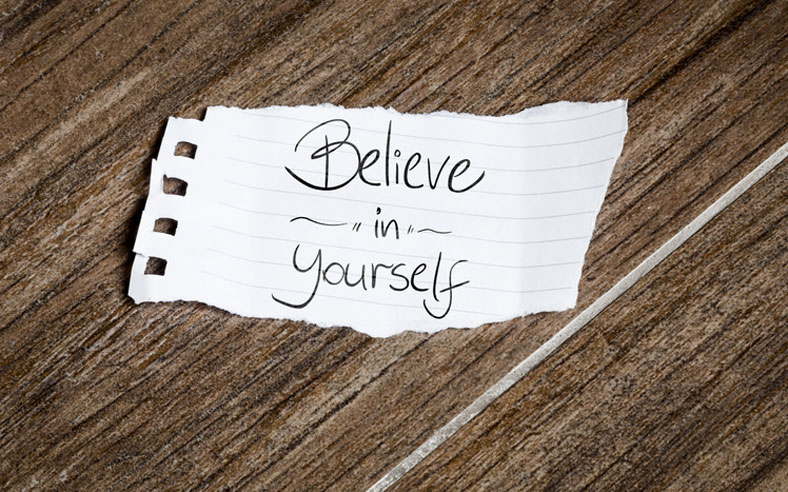Social workers do an incredible service for those they work with, taking responsibility for some very difficult situations and being exposed to profound levels of hardship. Because the job can be so emotionally taxing, it’s important for social workers to practice self-care, building routines that can help them manage the often overwhelming feelings that come from helping those in need.
Because social workers do such selfless work, it can sometimes be difficult for them to turn inward. However, social workers shouldn’t feel guilty for carving out time to address their own emotional needs.
For a social worker, practicing self-care is a long-term investment in your job, as it will help you sustain your energy and positivity for your career to come.
In fact, it’s the social workers who don’t take the time to look out for their own mental health who most frequently burn out. Don’t wait until you’re already too burdened by your work to start looking after yourself – rather, cultivate self-care skills now to bolster yourself for the difficult but extremely impactful work ahead of you. Affirmations are one example of an easy and uplifting self-care ritual that you can incorporate into your daily routine.
What are Affirmations?
Affirmations couldn’t be simpler: they are positive statements or mantras that serve as words of encouragement and strength. You can repeat them during moments of difficulty or build them into small rituals throughout your day to remind yourself of what you are grateful for in your life and what you are proud of about yourself. Both in the moment and over time, affirmations can boost your self-esteem, increase your motivation, lower rates of anxiety, and improve your life.
Though the skeptical might think this process sounds too simple – or perhaps too cheesy – science is beginning to back up the idea that affirmations can truly impact your well-being. A 2016 report by Social Cognitive and Affective Neuroscience Journal saw a relationship between self-affirmations and the brain activity linked to feelings of success and motivation. In other words, picking a few affirmations that are truly meaningful to you will truly make a difference in your day and in your approach to life.
Among the advantages of affirmations: they cost nothing, they take a matter of seconds, and they’re infinitely customizable to your unique experience and outlook. There’s no reason not to try out incorporating affirmations into your life and see if they help you stay motivated, upbeat, and calm.
For more information answering the question “What are affirmations,” from examples of affirmations to suggestions for how you can set the best affirmations to suit your needs, read on.
How to Use Affirmations in Your Day to Day
While affirmations can be useful in the moment, they are at their most effective when they are built into a daily routine, building resilience over time. Some refer to affirmations as part of a “reprogramming” process, encouraging your brain to return more easily to positive and uplifting thoughts. This is part of why it’s so important to select affirmations that are truly applicable to your life and your needs.
In order to figure out which affirmations will work for you, it can be helpful to spend some time asking yourself some difficult questions. Here are a few suggestions:
- What are your biggest hangups, insecurities, or sources of anxiety?
- When feeling stressed out or anxious, what are some of the things you focus on?
- Where would you like to see improvement in your career, relationships, or life in general?
While it’s no fun to dwell in that negative mental space, identifying the things that bring you down the most is an important first step toward figuring out which affirmations will be most useful to you. What are affirmations going to be for you? It’s by looking inward and asking honest questions of yourself that you’ll find out.

Daily Affirmations for Social Workers
Not only are there people who practice daily affirmations – there are people who have affirmations for multiple times of day, with some even practicing hourly. For some, this might sound excessive at first – what are affirmations going to do for you at 2pm that they couldn’t do at 9am? But there are good reasons to incorporate affirmations into different parts of your day.
The largest-scale goal of affirmations is to build patterns of positive thought.
This happens over time, using repetition to develop your reflexes. The idea is that the more frequently you consciously pause to direct your thoughts toward gratitude, motivation, and positivity, the more instinctively you will begin to have these thoughts in your day to day life.
No matter what the times are that you’re carving out for your daily affirmations, it’s imperative that you plan a routine that will fit the needs of your schedule. There might be some times in your day, such as your commute, that offer a regular uninterrupted moment to reflect. These can be especially helpful, as the recurring setting will help you get you in the right mental space to perform your daily ritual.
Below are some examples of affirmations for every time of day, as well as general rules and suggestions for how to craft an affirmation ritual that will inspire and energize you. Of course, these are worth customizing to suit your specific needs and lifestyle. What are affirmations going to do for you?

General Rules and Suggestions For Affirmations
When planning to incorporate affirmations into your life, there are a few ground rules that will help you get the most out of the practice. They are as follows:
- Keep your language positive. Your affirmation should be phrased in an uplifting, constructive, confident way. This means avoiding “no”s and “not”s. For example, rather than saying “I am not alone,” which is a positive statement that uses negative language, it’s better to say “I am surrounded by loved ones,” helping you instantaneously appreciate exactly what it is that you have to celebrate.
- Say your affirmations out loud. If you aren’t able to find a private space to repeat your affirmations aloud, that’s okay, but it’s optimal to plan your affirmations rituals so that you can use your voice. This has been shown to strengthen the neural connections between your words and your attitudes, helping you build these confidence-boosting habits and get the rewards of them.
- Try accompanying your affirmations with visualizations. It can be good to keep affirmations general so that they can support you through a variety of moods and situations. However, it’s also helpful to imagine things in detail, clarifying the goals that you are working toward. For example, if one of your affirmations is, “I am on the path to success,” it can be helpful to imagine what that might look like.
- Reflect on your affirmations. Beyond simply mastering the routine of saying them, it can be an excellent idea to actually reflect on your affirmations, especially once you are in the habit of repeating them regularly. You may see that they lead you to take initiative in ways that you previously hadn’t, or feel encouraged where you had previously felt discouraged.
Now that you know a few of the most important factors to consider while developing your own personal affirmations, take a look at our suggestions for affirmations you can use throughout the day.
Morning Affirmations
Mornings are a time to put yourself in the frame of mind that will help you conquer all that you need to accomplish in the day to come. Some days you might wake up feeling daunted or overwhelmed by what you have ahead of you. For this reason, it’s a great idea to choose some general affirmations that can make you feel empowered, excited, and in control of the day ahead.
Some examples of affirmations to start your day are the following:
- I am grateful.
- I am confident.
- I am ready for success.
- I love myself.
- My life is fulfilling.
- I am committed to my personal growth.
- I am at peace.
There are also some morning affirmations that specifically are designed to boost your energy. They include things like:
- I am ready to seize the day.
- I can take on any challenge that comes my way.
- I am excited to see what the day brings me.
- I will make the most of what today has to offer.
Midday Affirmations
Midday affirmations are intended to help you sustain your positive energy or to pick it back up if you have been having difficulty. Though it is absolutely fine for these to include some of the more general statements of positivity and enthusiasm included in the “morning affirmations” list above, midday affirmations are often more specifically targeted at work-related concerns. Some examples of affirmations for the middle of the day include the following:
- I have done great work so far today and will continue to do my best.
- I deserve my current and future successes.
- My hard work will lead me to great things.
- I am valued by my coworkers, bosses, and teammates.
- I will see today’s work through.
For some, it is also helpful to include some midday affirmations that are specifically not about work, reminding you of the life you have beyond your office. Some of these include the following:
- My passions will always continue to motivate me.
- I am valued by all around me.
- I deserve the life I want.
- I am in control of my work life balance.

Workplace affirmations for social workers
Since social workers’ jobs have such particular needs and stressors, here are a few suggestions for affirmations that are specific to the field. These can be done quietly at your workplace, on your lunch break, or on your commute. Some examples of affirmations for social workers are the following:
- I am doing meaningful work.
- It is important for me to take care of myself as I look out for everyone else.
- I am valued inside and outside of my job.
- I am making a difference in others’ lives.
- My ability to support others is worthy of celebration and pride.
Evening Affirmations
As you can guess, evening affirmations help you bring your day to a close by reflecting on the positive, helping you feel gratitude for the life you are living and easing some of the anxieties that might have come up throughout the day.
If you are wrapping up your day with some affirmations, here are a few great ones to get you started:
- I am proud of everything I accomplished today.
- I deserve to do what I want to do now that work is over.
- I leave work behind for the rest of the day.
- I love the home I have made for myself.
- I am grateful for the life I am living.
If you are reciting your affirmations right before bed, here are a few more suggestions to help you unwind:
- I release all fear and worry.
- I deserve deep and restorative rest.
- I am thankful for the day that I have had.
- I am excited to recharge for another wonderful day tomorrow.
More Tips for Social Workers
As the lists above make clear, the social work profession is one that calls to highly motivated, big-hearted people who feel empowered to help those around them. If you are interested in learning more about what it takes to become a social worker from a firsthand perspective, take a look at our article “How My Path Into the Social Work Profession Can Help Guide Yours.”
If you would like more information about degrees needed to become a social worker, take a look at our articles “What’s the Best Way to Earn an MSW Degree?” and “Today’s Online MSW Programs are Creating a New Kind of Professional Community.”
Meanwhile, if you are already taking the first steps in your social work career, our guide “Finding and Securing the Social Work Position You Want” will help you turn your intentions into realities.
Finally, for our index of the best online MSW programs by state, visit our homepage here.



